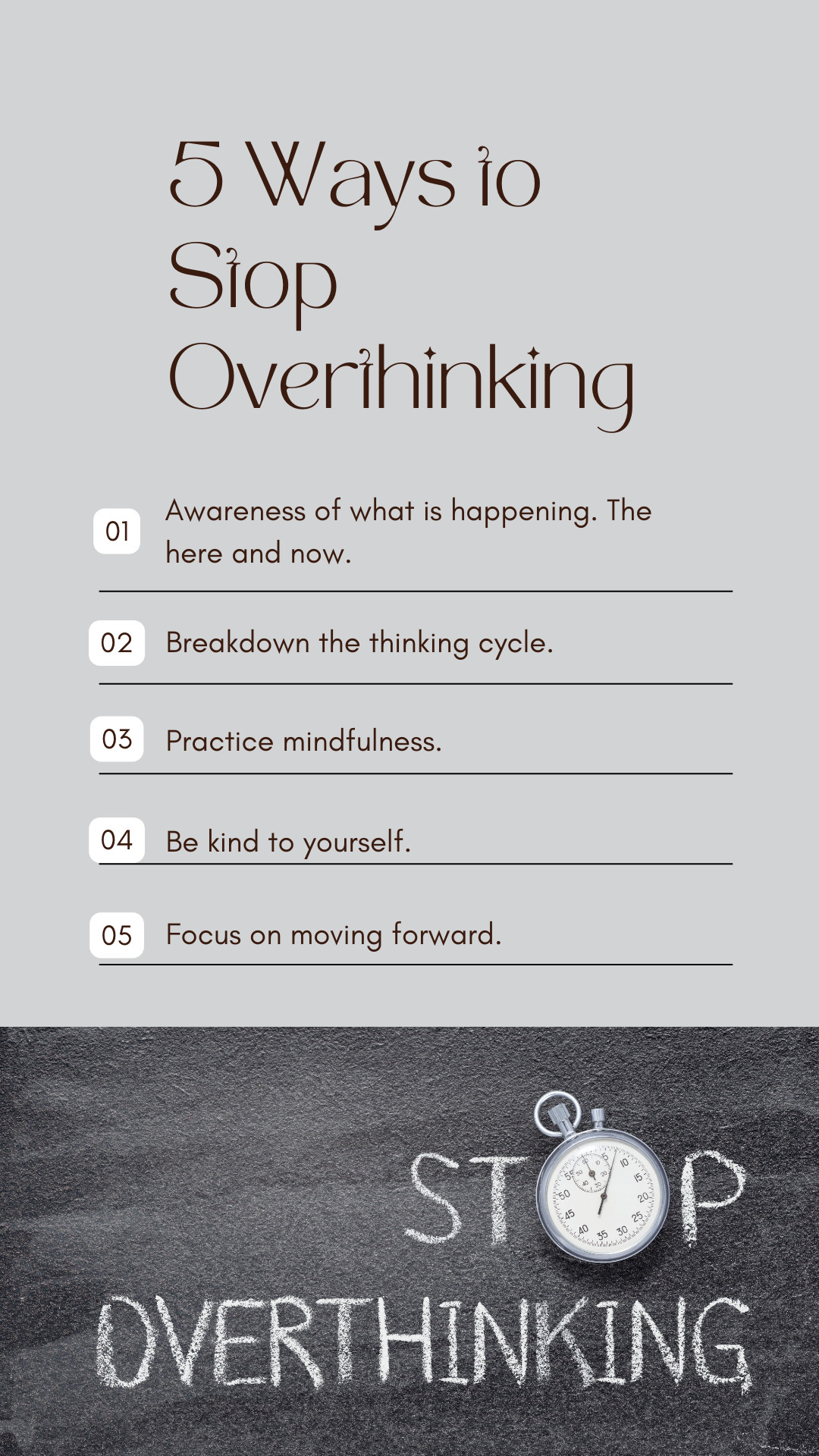How Counseling Can Help With Overthinking
- Do you over-analyze?
- Do you sometimes obsess over this or that?
If the answer is YES, to one or both, then more than likely you my friend engage in overthinking.
What Is Overthinking:
It’s important to know that there is a clear difference between “worrying” about a situation from time to time and “overthinking”. Overthinking can increase the risk of unwanted mental health symptoms. Such as anxiety, breathing difficulties, or feeling on edge.
Can Overthinking Be Harmful To Mental Health?
Overthinking can be harmful when it shifts to the side of the spectrum in which you begin to neglect your mental health and other key areas of practice. For instance, if a job interview did not go well.
You may overthink these experiences for days to weeks, to even months. You may over-analyze and obsess over it to the point that it impacts your day-to-day operations.
Overthinking is not solely focused on the past. It can take place with events that have not even taken place yet. A child may overthink and obsess over an upcoming test to the point that they blank out during the actual test.
You may be wondering, why people overthink.
Why Do People Overthink?
To some extent, there are plenty of good reasons to overanalyze. For instance, you may have engaged in overthinking when in a crisis-related situation that demands deep and concrete thinking.
Overthinking is connected to the mental health diagnosis of Generalized Anxiety Disorder (GAD). In particular to the following symptoms:
- Overly worrying about things.
- Difficulty focusing.
- A notable impact is found in how the anxiety symptoms interfere with life.
- Difficulty controlling the worry.
People overthink typically because they are experiencing some sort of stress. The stress can be from work, money, family, and so forth. People typically continue to engage in overthinking because it can grow into a cycle. Very similar to a bad habit that you have a difficult time interrupting.

4 Ways To Help You Stop Overthinking
I’m sure that you are not a fan of overthinking. It honestly doesn’t feel good and can grow into a harmful habit that hurts other key areas of life. I want you to practice self-compassion and patience when trying the tips to stop overthinking below.
1. Acceptance is a key step to stop overthinking.
Acceptance is the first step that can help you stop overthinking. During this step, you are to bring awareness to what is taking place. You can do this utilizing mindfulness-related questions. Such as, “What am I overthinking?” or “Why am I overthinking?”.
2. Understanding triggers can help to stop overthinking.
An important step in the work of getting out of your head and stopping the cycle of overthinking is to understand the triggers. It’s vital that you have a clear understanding of the triggers that nudge you to overthink, obsess, or overanalyze. Sometimes this can be a place, person, or situation that provokes overthinking.
3. Reduce overthinking by practicing self-compassion.
Self-compassion is not self-pleasure, it is not avoiding the issue or feeling, or putting the challenge at hand under the rug. Self-compassion is the mixture of two key ingredients, accountability, and self-love. The mixture creates goodwill, which provides you with the opportunity to learn and grow while giving yourself kindness. Read more on self-compassion here.
4. Working with a counselor can help with overthinking.
At this point, you have an understanding that overthinking is connected to triggers and associated with symptoms pertinent to a particular mental health diagnosis. Working with a counselor can provide you with the needed support to build healthy coping skills aimed at reducing overthinking, understanding how to recognize triggers, and healthy habits to replace overthinking with constructive thinking patterns. Click here to get to know the counselors at Santos Counseling PLLC.
5. Reflection exercises can reduce overthinking.
Reflection requires time and overthinking consumes time. What we want to do here is to allocate a certain amount of time focused on breaking down your cycle of overthinking. You can do this as a written exercise. This way you have a way of seeing how you think and process. The goal here is to reflect on what you see and develop a new of thinking that opposes overthinking.




